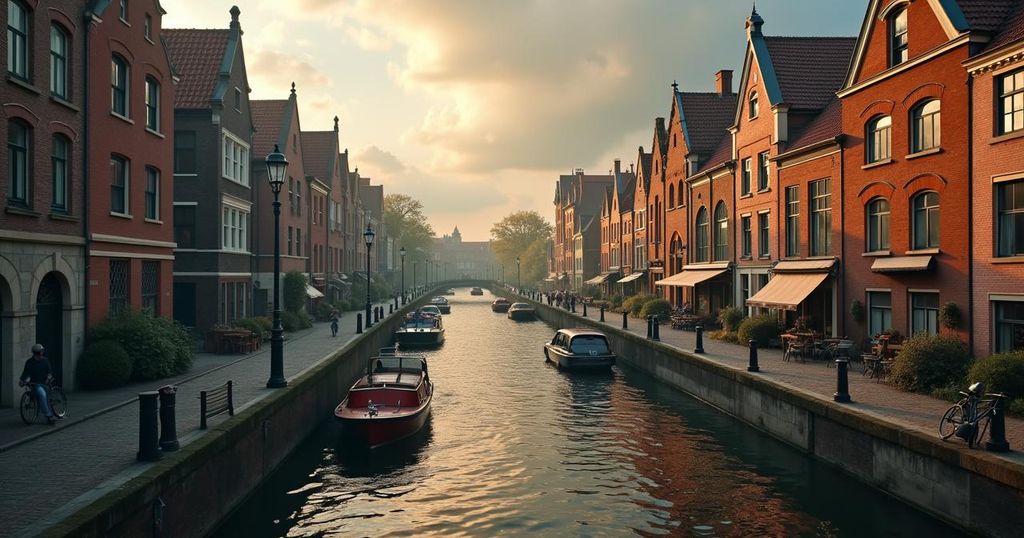Netherlands Issues Formal Apology to Indonesia for Historical War Crimes

Dutch Prime Minister Mark Rutte has issued a formal apology to Indonesia following a comprehensive study revealing the systematic use of extreme violence by Dutch forces during the 1945-49 Indonesian independence war. The investigation contradicts prior claims of sporadic violence, identifying widespread and deliberate atrocities, which previous Dutch administrations failed to acknowledge. Rutte’s statement marks a significant step in reconciling the historical relationship between the Netherlands and Indonesia.
On Thursday, Dutch Prime Minister Mark Rutte publicly apologized to Indonesia in light of a significant historical assessment revealing that the Netherlands employed systematic and excessive violence during Indonesia’s war of independence from 1945 to 1949. The comprehensive study, conducted by three research institutes over a four-year period, challenges the long-standing perception held by the Dutch government, which previously suggested that any violent actions by Dutch troops were sporadic as they attempted to regain control over the former colony following World War II. The research conclusively established that atrocities were committed in a deliberate and systematic manner. Findings indicated that extreme violence perpetrated by the Dutch military not only occurred on a wide scale but was also often intentional. The report stated, “It was condoned at every level: political, military and legal.” Researchers acknowledged the pervasive complicity within Dutch society, noting, “There was a collective willingness to condone, justify and conceal [the violence] and to let it go unpunished. All of this happened with a view to the higher goal: That of winning the war.” The report delineated various grave offenses including extrajudicial executions, torture, detainment in inhumane conditions, and disproportionate military actions. While the extent of these crimes and the number of victims remains elusive, the study highlights a significant departure from the previous Dutch narrative, which largely downplayed these events as isolated incidents. In his statement, Prime Minister Rutte expressed deep remorse not only for the brutal actions themselves but also for the failure of past administrations to acknowledge the extent of the violence. He stated, “For the systematic and widespread extreme violence from the Dutch side in those years and the consistent looking the other way by previous governments, I apologize deeply to the people of Indonesia.” Rutte emphasized the importance of facing the findings of the report, acknowledging their harshness while underscoring the government’s full accountability for this collective failure. This recent apology is not an isolated incident; it marks the first formal acknowledgment from the Dutch government of an intentional campaign of violence. Previous expressions of regret include King Willem-Alexander’s unexpected apology during a visit to Indonesia in March 2020, wherein he recognized “excessive violence” by Dutch forces, and Dutch Foreign Minister Bert Koenders’ apology in 2016 regarding a massacre of 400 Indonesian villagers in 1947.
The Netherlands and Indonesia share a complex history stemming from the colonial era, particularly during the mid-20th century as Indonesia sought independence from Dutch rule. Following World War II, violent conflicts erupted as Dutch forces attempted to reassert their authority over the archipelago, which had been occupied by the Japanese during the war. Although the Dutch government long maintained that its military actions were generally justified, revelations over the years, particularly from veterans, have indicated otherwise. The recent study represents a pivotal moment in acknowledging and reconciling the violent actions that occurred during this tumultuous period, highlighting the need for a more honest reflection on colonial legacies.
In summary, the Dutch government’s recent apology signifies a crucial acknowledgment of past atrocities committed during Indonesia’s struggle for independence. The in-depth study illustrates systematic violence by Dutch forces and the complicity of various levels of governance in condoning such acts. Prime Minister Rutte’s candid admission of regret indicates a significant shift in addressing historical wrongs, reflecting on the importance of confronting historical narratives to foster understanding and reconciliation between nations.
Original Source: www.newsfirst.lk








